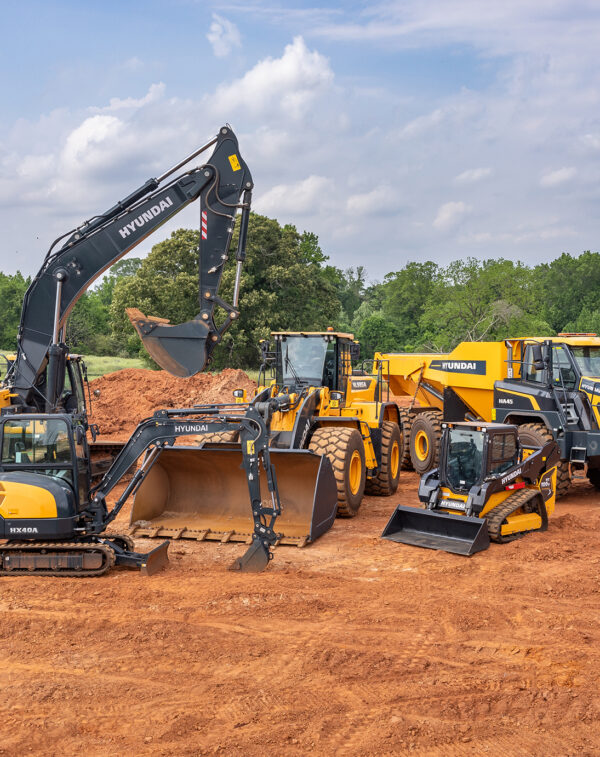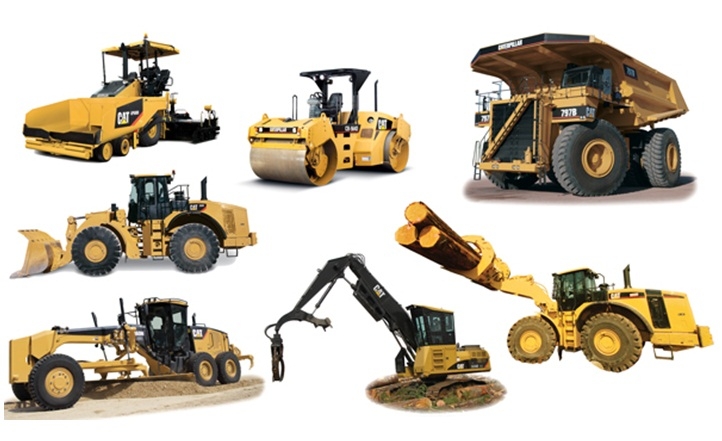Equipment Rental Company in Tuscaloosa AL: Your Relied On Source for Machinery
Equipment Rental Company in Tuscaloosa AL: Your Relied On Source for Machinery
Blog Article
Exploring the Financial Benefits of Leasing Construction Equipment Compared to Having It Long-Term
The decision between possessing and leasing building and construction tools is pivotal for monetary monitoring in the sector. Renting offers instant price financial savings and functional adaptability, allowing companies to designate resources extra successfully. Understanding these nuances is essential, particularly when taking into consideration how they align with specific job needs and monetary methods.

Price Comparison: Renting Vs. Owning
When reviewing the monetary ramifications of renting out versus owning building and construction devices, a comprehensive expense comparison is vital for making educated choices. The selection in between renting and owning can considerably influence a firm's lower line, and recognizing the linked prices is important.
Leasing construction devices usually entails reduced upfront expenses, enabling organizations to assign capital to other operational needs. Rental contracts typically consist of flexible terms, making it possible for companies to access advanced equipment without lasting commitments. This flexibility can be particularly beneficial for short-term tasks or changing workloads. Nevertheless, rental prices can gather gradually, possibly exceeding the expenditure of possession if devices is required for a prolonged period.
Alternatively, having construction tools calls for a substantial first financial investment, in addition to continuous costs such as depreciation, insurance policy, and financing. While possession can result in long-lasting cost savings, it likewise binds resources and may not provide the same degree of versatility as leasing. Furthermore, possessing tools necessitates a dedication to its application, which might not constantly straighten with task needs.
Ultimately, the decision to own or rent out needs to be based upon an extensive evaluation of particular project needs, monetary capability, and long-term strategic goals.

Maintenance Expenditures and Responsibilities
The choice between having and leasing building devices not just includes economic factors to consider but likewise includes recurring maintenance expenditures and obligations. Owning equipment calls for a considerable commitment to its upkeep, that includes routine evaluations, repair work, and potential upgrades. These responsibilities can swiftly accumulate, bring about unforeseen costs that can stress a budget plan.
In contrast, when renting devices, upkeep is normally the responsibility of the rental business. This setup enables contractors to stay clear of the economic concern related to deterioration, along with the logistical obstacles of organizing repair services. Rental contracts frequently include arrangements for upkeep, meaning that specialists can concentrate on completing jobs instead than stressing over tools problem.
In addition, the diverse variety of devices offered for rent enables firms to pick the most up to date versions with innovative technology, which can boost performance and efficiency - scissor lift rental in Tuscaloosa Al. By choosing for rentals, services can stay clear of the long-term responsibility of devices depreciation and the associated maintenance frustrations. Eventually, reviewing maintenance costs and responsibilities is critical for making an educated decision about whether to rent out or own building tools, significantly impacting general job expenses and operational efficiency

Depreciation Influence on Possession
A significant variable to think about in the decision to own building equipment is the influence of depreciation on overall possession costs. Depreciation stands for the decline in worth of the devices over time, affected by factors such as usage, deterioration, and advancements in innovation. As equipment ages, its market price decreases, which can significantly impact the proprietor's economic placement when it comes time to market or trade the equipment.
For construction business, this devaluation can equate to significant losses if the tools is not used to its greatest potential or if it lapses. Owners have to account for their website devaluation in their monetary estimates, which can cause higher total prices compared to renting. Additionally, the tax obligation implications of devaluation can be intricate; while it may provide some tax advantages, these are typically offset by the fact of minimized resale worth.
Eventually, the worry of devaluation stresses the significance of comprehending the long-term financial commitment involved in possessing construction devices. Business have to meticulously evaluate exactly how typically they will make use of the devices and the potential economic influence of devaluation to make an educated decision regarding possession versus leasing.
Financial Adaptability of Renting
Renting building equipment supplies significant monetary adaptability, enabling firms to allot sources extra efficiently. This adaptability is especially vital in a sector characterized by changing project needs and differing work. By choosing to rent out, services can avoid the considerable funding investment required for buying devices, maintaining capital for various other functional demands.
In addition, leasing equipment allows business to tailor their tools selections to particular task demands without the long-lasting commitment connected with possession. This implies that companies can quickly scale their tools stock up or down based upon current and anticipated job needs. Consequently, this flexibility lowers the threat of over-investment in equipment that may come to be underutilized or obsolete with time.
An additional monetary benefit of leasing is the potential for tax advantages. Rental repayments are commonly taken into consideration business expenses, permitting immediate tax reductions, unlike devaluation on owned and operated tools, which is spread over numerous years. scissor lift rental in Tuscaloosa Al. useful content This instant expenditure acknowledgment can even more improve a business's cash position
Long-Term Job Considerations
When assessing the long-term requirements of a building and construction organization, the choice in between renting out and possessing devices comes to be more complicated. Key factors to consider consist of task period, regularity of usage, and the nature of upcoming tasks. For jobs with prolonged timelines, acquiring equipment might appear advantageous as a result of the potential for lower general prices. Nonetheless, if the tools will not be used continually across tasks, having might cause underutilization and unnecessary expenditure on storage, insurance policy, and maintenance.
In addition, technical innovations posture a considerable consideration. The building market is developing quickly, with brand-new equipment offering boosted effectiveness and security features. Leasing enables companies to access the most up to date modern technology without devoting to the high ahead of time expenses connected with getting. This versatility is specifically beneficial for organizations that take care of varied tasks calling for different types of equipment.
Furthermore, financial stability plays an essential function. Having tools often requires substantial funding investment and depreciation problems, while renting out permits even more foreseeable budgeting and capital. Ultimately, the option between possessing and renting out additional info should be straightened with the calculated purposes of the construction service, considering both present and expected job needs.
Verdict
Finally, renting out building tools uses substantial financial benefits over long-lasting ownership. The decreased in advance costs, elimination of maintenance responsibilities, and avoidance of depreciation contribute to improved cash money circulation and financial versatility. scissor lift rental in Tuscaloosa Al. Furthermore, rental settlements offer as prompt tax obligation reductions, further profiting contractors. Inevitably, the choice to rent instead of very own aligns with the dynamic nature of construction tasks, enabling flexibility and accessibility to the most up to date equipment without the financial worries connected with possession.
As tools ages, its market value reduces, which can dramatically impact the proprietor's financial setting when it comes time to sell or trade the tools.
Renting out construction equipment offers substantial monetary versatility, enabling firms to assign resources much more efficiently.In addition, renting tools makes it possible for business to tailor their equipment choices to specific project demands without the lasting dedication connected with ownership.In conclusion, leasing building tools offers significant economic advantages over long-lasting possession. Ultimately, the choice to lease instead than own aligns with the vibrant nature of building tasks, enabling for adaptability and access to the most current tools without the financial concerns associated with ownership.
Report this page